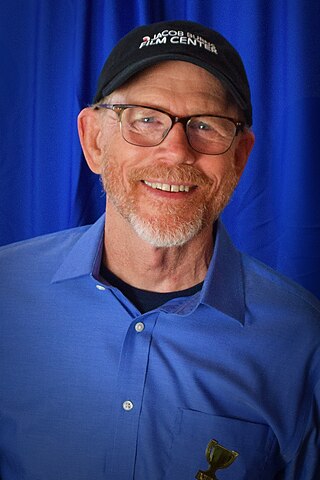
Ronald William Howard is an American director, producer, screenwriter, and actor. Howard started his career as a child actor before transitioning to directing films. Over his six decade career, Howard has received two Academy Awards, four Emmy Awards, two Golden Globe Awards, and a Grammy Award. He was awarded the National Medal of Arts in 2003 and was inducted into the Television Hall of Fame in 2013. Howard has two stars on the Hollywood Walk of Fame for his contributions in film and television.

Nixon is a 1995 American epic historical drama film directed by Oliver Stone, produced by Clayton Townsend, Stone, and Andrew G. Vajna. The film was written by Stone, Christopher Wilkinson, and Stephen J. Rievele, with significant contributions from "project consultants" Christopher Scheer and Robert Scheer. The film tells the story of the political and personal life of former U.S. President Richard Nixon, played by Anthony Hopkins.

Michael Christopher Sheen is a Welsh actor. After training at London's Royal Academy of Dramatic Art (RADA), he worked mainly in theatre throughout the 1990s with stage roles in Romeo and Juliet (1992), Don't Fool with Love (1993), Peer Gynt (1994), The Seagull (1995), The Homecoming (1997), and Henry V (1997). His performances in Amadeus at the Old Vic and Look Back in Anger at the National Theatre were nominated for Olivier Awards in 1998 and 1999, respectively. In 2003, he was nominated for a third Olivier Award for his performance in Caligula at the Donmar Warehouse.

Sir David Paradine Frost was a British television host, journalist, comedian and writer. He rose to prominence during the satire boom in the United Kingdom when he was chosen to host the satirical programme That Was the Week That Was in 1962. His success on this show led to work as a host on American television. He became known for his television interviews with senior political figures, among them the Nixon interviews with US president Richard Nixon in 1977 which were adapted into a stage play and film. Frost interviewed all eight British prime ministers serving from 1964 to 2016, from Alec Douglas-Home to David Cameron, and all eight American presidents in office from 1969 to 2008, from Lyndon B. Johnson to George W. Bush.
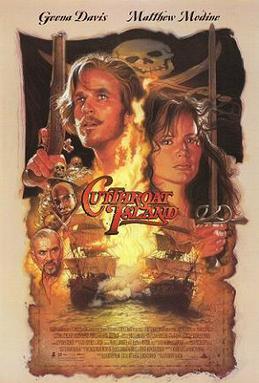
Cutthroat Island is a 1995 adventure swashbuckler film directed by Renny Harlin and written by Robert King and Marc Norman from a story by Michael Frost Beckner, James Gorman, Bruce A. Evans and Raynold Gideon. It stars Geena Davis, Matthew Modine and Frank Langella. It is a co-production among the United States, France, Germany and Italy.

Frank A. Langella Jr. is an American actor known for his roles on stage and screen. He eschewed the career of a traditional film star by making the stage the focal point of his career, appearing frequently on Broadway. He has received numerous accolades including four Tony Awards, a Drama Desk Award and a Screen Actors Guild Award as well as nominations for an Academy Award, a BAFTA Award, an Emmy Award, and two Golden Globe Awards.
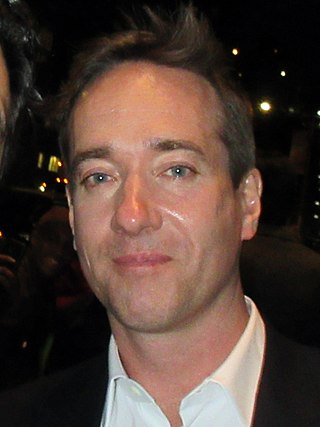
David Matthew Macfadyen is an English actor. Known for his performances on stage and screen, he gained prominence for his role as Mr. Darcy in Joe Wright's Pride & Prejudice (2005). He rose to international fame for his role as Tom Wambsgans in the HBO drama series Succession (2018–2023), for which he received two consecutive Primetime Emmy Awards and a Golden Globe Award.

The Box is a 2009 American thriller film written and directed by Richard Kelly who also serves as a co-producer. It is based on the 1970 short story "Button, Button" by Richard Matheson which was previously adapted into an episode of The Twilight Zone. The film stars Cameron Diaz and James Marsden as a couple who receive a box from a mysterious man who offers them one million dollars if they press the button sealed within the dome on top of the box but tells them that once the button has been pushed, someone they do not know will die.
James Reston Jr. was an American journalist, documentarian and author of political and historical fiction and non-fiction. He wrote about the Vietnam War, the Jonestown Massacre, civil rights, the impeachment of Richard Nixon, and the September 11 attacks.
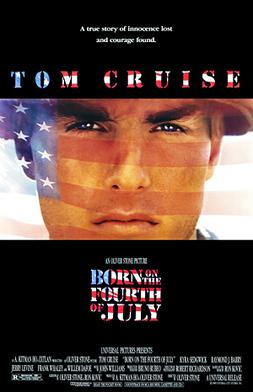
Born on the Fourth of July is a 1989 American epic biographical anti-war film that is based on the 1976 autobiography of Ron Kovic. Directed by Oliver Stone, and written by Stone and Kovic, it stars Tom Cruise, Kyra Sedgwick, Raymond J. Barry, Jerry Levine, Frank Whaley, and Willem Dafoe. The film depicts the life of Kovic (Cruise) over a 20-year period, detailing his childhood, his military service and paralysis during the Vietnam War, and his transition to anti-war activism. It is the second installment in Stone's trilogy of films about the Vietnam War, following Platoon (1986) and preceding Heaven & Earth (1993).

Peter Julian Robin Morgan, is a British screenwriter and playwright. He has written for theatre, films and television, often writing about historical events or figures such as Queen Elizabeth II, whom he has covered extensively in all major media. He has received a number of accolades including five BAFTA Awards, two Primetime Emmy Awards, and four Golden Globe Awards as well as nominations for two Academy Awards, a Tony Award and a Laurence Olivier Award. In February 2017, Morgan was awarded a British Film Institute Fellowship.
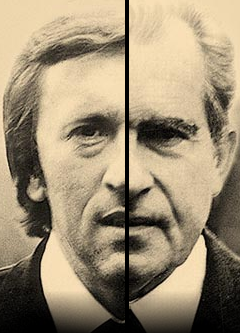
Frost/Nixon is a 2006 British historical play by Peter Morgan. The play is based on a series of controversial televised interviews granted by former U.S. president Richard Nixon to English broadcaster David Frost in 1977. The interviews focused on Nixon's administration, including his role in the Watergate scandal that ultimately led to his resignation as president.

John Vincent Brennan was a United States Marine Corps officer and political aide. He is best known as being President Richard Nixon's post-resignation chief of staff.

Underworld: Rise of the Lycans is a 2009 American action horror film directed by Patrick Tatopoulos from a screenplay by Danny McBride, Dirk Blackman, and Howard McCain, based on a story by Len Wiseman, Robert Orr, and McBride. It is a prequel to Underworld (2003) and the third installment in the Underworld film series. The film stars Michael Sheen, Bill Nighy, Rhona Mitra, Steven Mackintosh, and Kevin Grevioux. The plot focuses primarily on the origins of the characters and the events that lead up to the Vampire–Lycan war. Kate Beckinsale, who starred in the previous Underworld films, appears briefly at the end of the film.
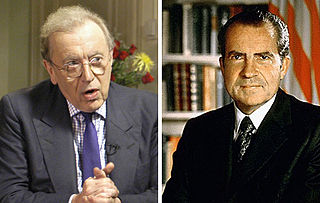
The Nixon interviews were a series of conversations between former American president Richard Nixon and British journalist David Frost, produced by John Birt. They were recorded and broadcast on television and radio in four programs in 1977. The interviews later became the central subject of Peter Morgan's play Frost/Nixon in 2006.
Marvin Minoff was an American film and television producer best known for having produced The Nixon Interviews by British journalist David Frost of former U.S. President Richard Nixon in 1977. Minoff also co-produced, along with his business partner Mike Farrell and others, the 1998 film Patch Adams, starring Robin Williams.
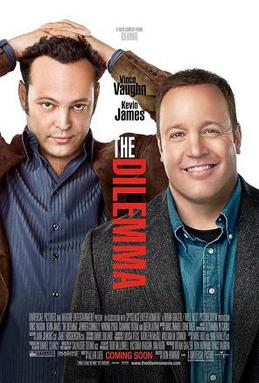
The Dilemma is a 2011 American comedy-drama film directed by Ron Howard, written by Allan Loeb and starring Vince Vaughn and Kevin James. The film follows savvy businessman Ronny (Vaughn) and genius engineer Nick (James), who are best friends and partners in an auto design firm. They are pursuing a project to make their firm famous. Ronny sees Nick's wife Geneva kissing another man. Ronny seeks out answers and has to figure out how to tell Nick about what he saw while working with him to complete their critical presentation.

J. Edgar is a 2011 American biographical drama film based on the career of FBI director J. Edgar Hoover, directed, produced and scored by Clint Eastwood. Written by Dustin Lance Black, the film focuses on Hoover's life from the 1919 Palmer Raids onward. The film stars Leonardo DiCaprio in the title role along with Armie Hammer, Naomi Watts, Josh Lucas, and Judi Dench, and features Adam Driver in his film debut.
Richard Nixon, the 37th President of the United States, has inspired or been portrayed in numerous cultural works.
















